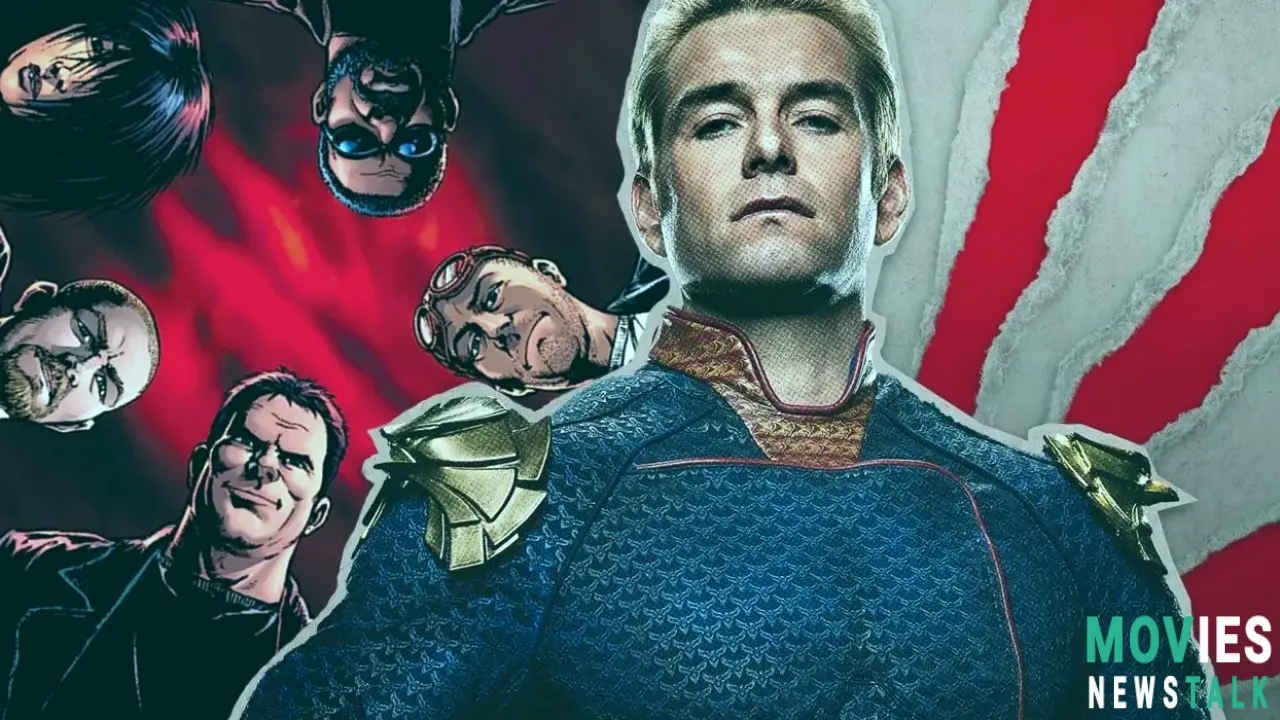Homelander Respects Almost No One - Except His Greatest Enemy, Billy Butcher
Homelander, the unhinged supe who served as the primary antagonist for the majority of The Boys' run, respected just one character in the entire franchise - and rather than one of his teammates on the Seven, he actually extended his begrudging esteem to Billy Butcher, the sworn enemy of all superpowered characters.
The Boys #5, written by Garth Ennis, with art by Darick Robertson, emphasized that, despite the violently antagonistic nature of their relationship, Homelander respected Butcher, the leader of the Boys, recognizing him as a worthy, and dangerous, opponent.
Considering that series would subsequently make it clear that Homelander was a super-narcissist – with his self-centeredness bordering on solipsism, who essentially held all life in contempt – it is worth taking note of his early acknowledgment of Billy Butcher. With the complete arc of The Boys in mind, it adds a dimension of complexity to where both characters ultimately ended up.
Butcher's Hatred Of Supes Drove Him To Become One
In The Boys #5, the members of the Seven are depicted holding a meeting, during which Homelander brings up the fact that Billy Butcher has been harassing supes lately, targeting other super-teams, while strategically avoiding the Seven. Homelander is worried that Butcher will eventually come after them, as he all but warns his fellow teammates that Butcher is someone who never slows down, never stops, and never makes a mistake, and will unrelentingly continue his crusade against supes until they are all destroyed – or he is.
This scene in The Boys #5 serves to reiterate to readers that there is history between the Seven and the Boys, backstory that was slowly revealed to the audience as the series progressed. At this early stage of the comic's run, the true extent of Homelander's character was not fully understood by fans – or perhaps, even by the franchise's creators – but his acknowledgment of Billy Butcher's brutal effectiveness fits with the full picture of both characters offered by the series.
Above all else, Homelander – especially during the early run of The Boys – was committed to preserving his power, and perpetuating his lifestyle. It makes sense that he would take a pragmatic view of the threat posed by Butcher and the Boys, though his increasing desperation and emotion in the face of the war on supes proved to be an essential facet of the arc of the series. Still, in The Boys #5, the leader of the Seven remains calm, resolutely diagnosing a threat and refusing to downplay its severity.
Though Billy Butcher relentlessly sought the destruction of all superpowered individuals, in order to achieve this, he had to become what he hated most. By dosing themselves with Compound V, the team acquired their own limited superstrength and durability in order to go toe-to-toe with supes – technically making the Boys supes themselves. This complex dynamic was integral to The Boys, something that Homelander's "respect" for Butcher also accentuates.
The Boys is best known as a satire, and while that reputation is absolutely warranted, the firm dramatic underpinnings of Garth Ennis' story shouldn't be neglected. A wholly irreverent satire might have made Homelander respond to the threat of the Boys with petulance from the start, but Ennis' made sure to ground the series dramatically before allowing it to go off the rails in the most narratively satisfying way possible. Again, Homelander's opinion of Billy Butcher, as stated in The Boys #5, is a solid example of that.
The Boys' TV Adaptation Should Emphasize Homelander's Respect For Butcher
So much of the story of The Boys comes down to how Homelander and Butcher stack up against one another, and the supe's assessment of his enemy in The Boys #5 was pivotal to establishing that.
Part of what made The Boys comic series so exciting was the rich lore of its fictional world, which blended alternate history and superhero pastiche. That world has continued to expand through Amazon's TV adaptation of the series, as well as its spin-offs. While the television show has become its own distinct thing, the original comic was more-or-less a piece of hate mail delivered to the entire superhero genre. Every issue reinforced the idea that superheroes were inherently immoral, given the unnatural nature of their superhuman abilities, and the series routinely showed superheroes being brutally murdered.
This is what makes it especially notable that the most powerful supe in the series, Homelander, respected only one character – and it was not one of his superhero colleagues, such as the Wonder Woman analogue Queen Maeve, or Batman-dupe Black Noir – but rather Billy Butcher. As it approaches its own climactic ending, The Boys TV series will certainly offer at least one more major confrontation between Butcher and Homelander, and if it can further accentuate the respect the leader of the Seven holds for the Boys' head, the show can only be stronger for it.
Though the ending of The Boys will diverge significantly from the final act of the comic, the Homelander/Butcher dynamic remains crucial. As adversaries, they present one of the most tense, emotionally-charged feuds in the history of the superhero genre, and while it is a conflict driven by hatred on both sides, the added complexity of Homelander's respect for Butcher makes it even more exciting. So much of the story of The Boys comes down to how Homelander and Butcher stack up against one another, and the supe's assessment of his enemy in The Boys #5 was pivotal to establishing that.
The Boys #5 is available now from Dynamite Entertainment.

